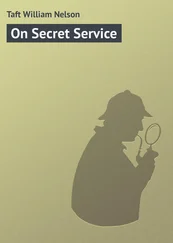William Fitzpatrick - Secret Service Under Pitt
Здесь есть возможность читать онлайн «William Fitzpatrick - Secret Service Under Pitt» — ознакомительный отрывок электронной книги совершенно бесплатно, а после прочтения отрывка купить полную версию. В некоторых случаях можно слушать аудио, скачать через торрент в формате fb2 и присутствует краткое содержание. Жанр: foreign_antique, foreign_prose, на английском языке. Описание произведения, (предисловие) а так же отзывы посетителей доступны на портале библиотеки ЛибКат.
- Название:Secret Service Under Pitt
- Автор:
- Жанр:
- Год:неизвестен
- ISBN:нет данных
- Рейтинг книги:5 / 5. Голосов: 1
-
Избранное:Добавить в избранное
- Отзывы:
-
Ваша оценка:
- 100
- 1
- 2
- 3
- 4
- 5
Secret Service Under Pitt: краткое содержание, описание и аннотация
Предлагаем к чтению аннотацию, описание, краткое содержание или предисловие (зависит от того, что написал сам автор книги «Secret Service Under Pitt»). Если вы не нашли необходимую информацию о книге — напишите в комментариях, мы постараемся отыскать её.
Secret Service Under Pitt — читать онлайн ознакомительный отрывок
Ниже представлен текст книги, разбитый по страницам. Система сохранения места последней прочитанной страницы, позволяет с удобством читать онлайн бесплатно книгу «Secret Service Under Pitt», без необходимости каждый раз заново искать на чём Вы остановились. Поставьте закладку, и сможете в любой момент перейти на страницу, на которой закончили чтение.
Интервал:
Закладка:
'Should I succeed in drawing from him any further information on this point, I shall have great pleasure in transmitting it. He further stated that, when taken in Kent, 128 128 At Margate with Father O'Coigly.
although he had not authorised any person to hire a vessel direct for France, but rather looked to reach a Dutch port, yet his real object was to pass through Switzerland into France, and fairly confessed that, had he reached Paris, he should not have been idle, as, though not charged with any special commission, he did believe the Directory would have considered him as an accredited agent.' 129 129 Castlereagh Papers , i. 309-10.
Ordinary students of history are not free to search the papers of the Home Office, London after the date 1760; and the present writer ventured to ask Mr. Lecky whether he had met the name of Turner in his inquiries. The object of Mr. Lecky's history is distinct from mine, and his researches have taken a different direction; but he could not fail to observe, he said, that the Government correspondence threw not much light on questions of espionage, 'for names of informers,' he adds, 'are nearly always concealed.' However, on referring to his notes, it appeared that ' Richardson ' was the pseudonym of Samuel Turner. While thanking my correspondent, I thought it well to remind him that in the 'Castlereagh Papers' 130 130 General index to the Correspondence of Lord Castlereagh . 'Furness' is the name under which Reinhard, the French minister, refers to him when writing to his Government.
'Furnes' is stated to be the alias for this man. And I added, in order to guard against mistake, that one Thomas Richardson, a Liberal magistrate for Tyrone, was confined, in 1797, with Neilson and Teeling. The historian's reply is very satisfactory: 131 131 Letter of W. E. H. Lecky, Esq., to W. J. F., Athenæum Club, London, July 5, 1888. Richardson, the popular author of 'Pamela,' was then a specially familiar name, and one which would readily occur to a well-read man who divulged the secrets of a real Pamela. The plot in the stories of Samuel Richardson is developed by letters, a branch of composition in which Samuel Turner was au fait . There seems a strange irony in this spy describing, under the nom de plume of Richardson, a new 'History of Pamela' and her struggles. Dr. Madden says that, after the death of her husband, Pamela returned in painfully straitened circumstances to Hamburg, the only place to which she could with prudence go. Madden little dreamt that the fugitive's retreat was the serpent's lair.
'Samuel Turner wrote his letters to the British Government under the name of Richardson. This,' adds Mr. Lecky, 'is not a matter of inference, but of distinct proof.'
Once only 'Richardson' is mentioned in 'Castlereagh.' It was the false name by which the Home Office, when obliged to communicate with Dublin Castle, masked Samuel Turner, LL.D., of the Irish Bar. Lord Castlereagh's letter to the Home Office confirms the intimate knowledge possessed by Turner of the doings of O'Connor and Lord Edward Fitzgerald. O'Connor was now – August, 1798 – in an Irish dungeon; and Lord Castlereagh having, as he says, pressed him to answer certain questions, adds: ' This perfectly agrees with Richardson's information, which states that Lord Edward and O'Connor met Hoche and arranged the invasion. '
Besides his horror of martyrdom by the knife, Turner had a lively dread of the martyrdom of exposure and social ostracism. Jackson's trial in 1794 had the effect of deterring approvers. Curran's skill in torturing such persons was marvellous; and Mr. Froude declares that he stretched Cockayne as painfully as ever the rack-master of the Tower stretched a Jesuit. 'He made him confess that he had been employed by Pitt, and showed that, if Jackson was a traitor to the State, Cockayne was a far blacker traitor to the friend who trusted him.' 132 132 The Rev. William Jackson, an Anglican clergyman, came to Dublin on a treasonable mission, accompanied, as his friend and legal adviser, by Cockayne, a London attorney. The latter was deputed by Pitt to entrap the National leaders. Cockayne prosecuted Jackson to conviction. In Ireland, unlike England, one witness then sufficed to convict for high treason.
'Richardson' is now shown to be the same man as he who gave his information to Downshire; and that 'Richardson' was an assumed name for Samuel Turner. 133 133 In a letter dated June 8, 1798, Wickham speaks of the source from which 'R' procured 'all the information that he has communicated to us' – meaning what concerned Lady Edward Fitzgerald, Valence, Mrs. Matthiessen, Reinhard, and other ingenuous friends at Hamburg, who told Turner all they knew. Dr. Madden and others mistook this 'R' for the incorruptible Reinhard, as M. Mignet styles him. See folio 102, infra .
Thus the question of identity is established without appealing to further evidence. But inasmuch as my efforts to track Turner open up facts long forgotten, and others new to the historian, some readers may not object to follow.
As regards Lord Edward's meeting with Hoche, more than once referred to in Turner's letter to Lord Downshire and in the correspondence of the Home Office, M. Guillon, a recent investigator, 134 134 France et Irlande (Paris, 1888).
could find no trace of it in the French official archives. Special efforts were made at the time to veil this historic interview. No wonder, therefore, that Mr. Froude, in introducing the information furnished by Downshire's mysterious visitor, points specially to the secret meeting with Hoche, and how Hoche himself had not revealed it even to Tone.
Wickham was but carrying out Portland's behest in signifying to Castlereagh that O'Connor, then a prisoner, should be questioned on points of which the Home Office had acquired private knowledge. On August 23, 1798, the same polite pumping of O'Connor is urged – a task fraught with no great labour to a man of Castlereagh's tact and powers of persuasion. 'A private communication,' Wickham writes, 'of the names of the persons with whom Mr. O'Connor corresponded abroad, would answer the particular purpose required by the Duke of Portland.' The 'particular' object is not explained. It was probably that the spy might, as previously suggested, cultivate epistolary relations with the men whom O'Connor 135 135 Vide Appendix for some revelations of fratricidal betrayal by O'Connor's brother.
would admit to have been his correspondents. 136 136 One letter only, from Richardson (Turner) to Lord Downshire, I have found in the Pelham MSS.; it bears date 'Hamburg, December 1, 1797': — 'My Lord, – I cannot contrive any mode of seeing Mr. Fraser without running a very considerable risque of a discovery. For this reason I now intrude to request you'll be so kind as to favour me with a few lines. I wrote to you on November 17, by post. Since that I have sent you two letters by Captain Gunter, of the Nautilus: the first contains seven and a half pages of letter paper; the second, a single letter with such information as I could collect, which I hope will be material. Gunter promised to put them in the Yarmouth office himself. 'It will be requisite for your lordship to lay aside every emblem of noblesse, and adopt the style of an Irish sans-culotte, for fear of accidents. If I appear worthy the further notice of your lordship, no pains on my part shall be spared to merit the honour of being ranked among your lordship's most sincere, 'J. Richardson. 'December 1, 1797, Hamburg (under cover to the master of the post-office, Yarmouth).' – Pelham MSS. Placed far apart from Richardson's letter is found the despatch of Cooke, wherein it had been enclosed. 'The letters by the "Nautilus" have not been received,' he writes, 'and we know not how to direct to him.' The Pelham MSS. are pyramids in bulk, but no other letter from Richardson, alias Turner, is entombed within them.
Интервал:
Закладка:
Похожие книги на «Secret Service Under Pitt»
Представляем Вашему вниманию похожие книги на «Secret Service Under Pitt» списком для выбора. Мы отобрали схожую по названию и смыслу литературу в надежде предоставить читателям больше вариантов отыскать новые, интересные, ещё непрочитанные произведения.
Обсуждение, отзывы о книге «Secret Service Under Pitt» и просто собственные мнения читателей. Оставьте ваши комментарии, напишите, что Вы думаете о произведении, его смысле или главных героях. Укажите что конкретно понравилось, а что нет, и почему Вы так считаете.












